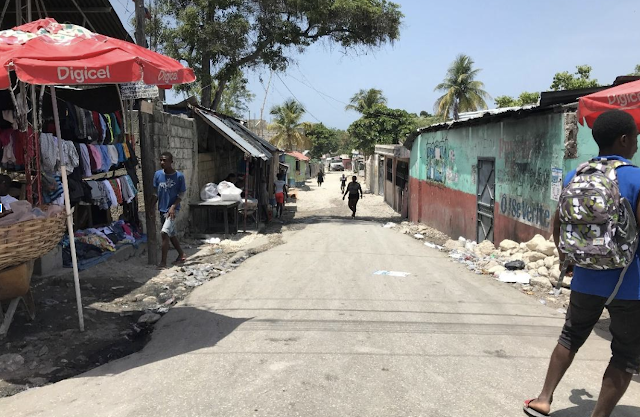Haiti Is On The Brink Of A Humanitarian Catastrophe, United Nations Warns
A combination of fuel shortages, food insecurity, gang violence, political instability and a public health crisis is leading Haiti to a humanitarian catastrophe, Helen La Lime told an emergency UN Security Council meeting.
As BBC reported on Monday, the Caribbean country is experiencing weeks of violence and attacks on food aid warehouses have rocked the nation’s food security. In protest of the dire situation, businesses have closed and transport services are not running.
Thousands are calling for Prime Minister Ariel Henry’s resignation.
Civil unrest across the island escalated after he announced an end to government fuel subsidies on 11 September, which caused gas and diesel prices to skyrocket.
Since then, protests and looting have intensified, with the capital, Port-au-Prince, at the heart of it.
Read the main aspects of the current and dire situation in Haiti, one of the most important countries in the history of the African Diaspora:
Food Insecurity
The economic crisis has caused food prices to soar.
La Lime told the UN Security Council on Monday that an estimated 2,000 tonnes of food aid, valued at close to $5m, were lost following repeated attacks on local warehouses of the UN Food Programme.
“That would have collectively supported up to 200,000 of the most vulnerable Haitians over the next month”, she said.
The insecurity has also severely curtailed humanitarian access and made it “very difficult and dangerous” to deliver, according to Valerie N. Guarnieri, Deputy Executive Director at the World Food Programme (WFP).
“We expect food security to further deteriorate this year, surpassing the record high of 4.5 million people estimated to face crisis or worse levels of acute food insecurity, including 1.3 million people in emergency,” she said.
Gang Violence
The UN estimates that at least 1.5 million people in the Caribbean country have been directly impacted by recent unrest, with gender-based violence, and in particular, rape being used systematically.
Barricades have been erected throughout the country, prompting a nationwide shutdown, with the situation persisting in the capital for a full five days.
Fuel Crisis
Protests broke out in Haiti after the Prime Minister announced on 11 September that the Government will reduce some $400 million in fuel subsidies in efforts to increase revenue for social programmes.
By the following day, one of the largest gang alliances also blocked the main fuel terminal there on 12 September. The siege lasted for over a week, despite concerted operations by the police over the weekend.
Cholera Outbreak
After more than 3 years with no cases of cholera reported in Haiti, on 2 October 2022, the national authorities reported two confirmed cases of Vibrio cholerae O1 in the greater Port-au-Prince area.
In addition, as of 2 October 2022, clusters of suspected cases and deaths are under investigation in various communities of Ouest Department, including the communes of Cité Soleil and Port-au-Prince.
Cholera is an illness that is caused by drinking water or eating food contaminated with cholera bacteria. It can trigger severe diarrhea as well as vomiting, thirst and other symptoms.


